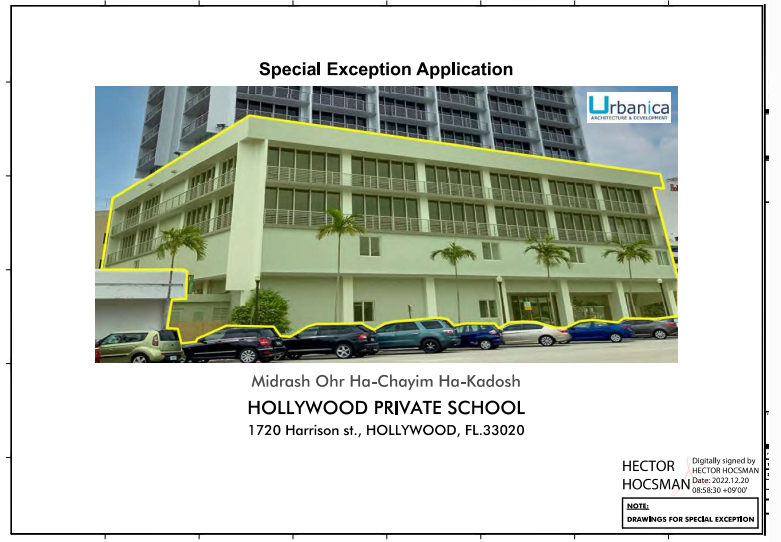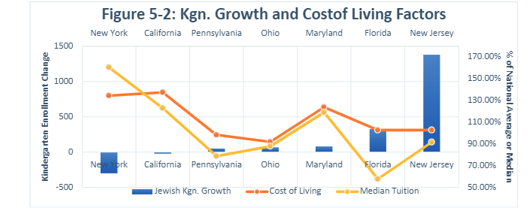
The headline: Families who enrolled their children at a new Jewish day school in South Florida were forced to temporarily seek other options after local zoning and permitting issues delayed the school’s opening.
Behind the headline: A new law granting universal K-12 scholarship eligibility to all Florida families has created record demand. More families are leaving states like New York, slowing growth in Jewish schools there and fueling a boom in  demand for Jewish schools in Florida.
demand for Jewish schools in Florida.
Between the lines: Bet Midrash Ohr Ha-Chayim Ho-Kadosh had planned to open the K-8 private school last month on the first four floors of the Home Tower, an 18-story building in the South Florida city of Hollywood. But first, officials had to seek a special land use exception from the city officials. A charter school next door used to occupy the same space in the Home Tower that Bet Midrash plans to use, which would make it seem like a slam dunk.
Not so fast: City planners recommended approval of the special exception, but with conditions. Those included updating a traffic study, getting a road access permit from the Florida Department of Transportation, busing all students, and staggering pickup and drop-off times with the neighboring charter school. Bet Midrash agreed to all of it.
Yes, but: Despite the staff recommendation and a federal law preventing local governments from placing undue land-use burdens on religious institutions, the city Planning and Development Board voted it down 5-2. The reason? Concerns about traffic congestion. The board also said school leaders failed to provide a complete traffic study, which the planners said was okay if they submitted an updated one.
Big picture: A law passed in 2022 reined in local government rules that blocked new charter schools. It allowed charter schools to skip certain land use hurdles if they were housed in churches, museums, libraries, colleges or universities, community service centers, theaters, cinemas, or if the proposed location had recently housed another school or child care center as long as the sites met health, safety and welfare standards.
If Bet Midrash were a charter school, these changes would have helped it get a local government green light.Why it matters: Despite skyrocketing demand, private school founders still face many barriers to getting their doors open. Finding a suitable location and being able to afford it is formidable, says Eric Oglesbee, director of the Drexel Fund, a national nonprofit that supports new schools in underserved areas. That’s especially true for first timers without deep pockets or pre-existing local government relationships.
“Single founders are often bootstrapping their way to opening a school. They don’t have connections to have conversations (with local officials) ahead of time,” he says. “You can rack up thousands of dollars on a prospective site…and find that it falls through.”
What’s next: Bet Midrash is expected to appeal the planning board’s denial to the Hollywood City Commission, which could hear the matter as early as Sept. 20. Meanwhile, the school remains closed while it works out unrelated health and safety permitting issues with local officials.


